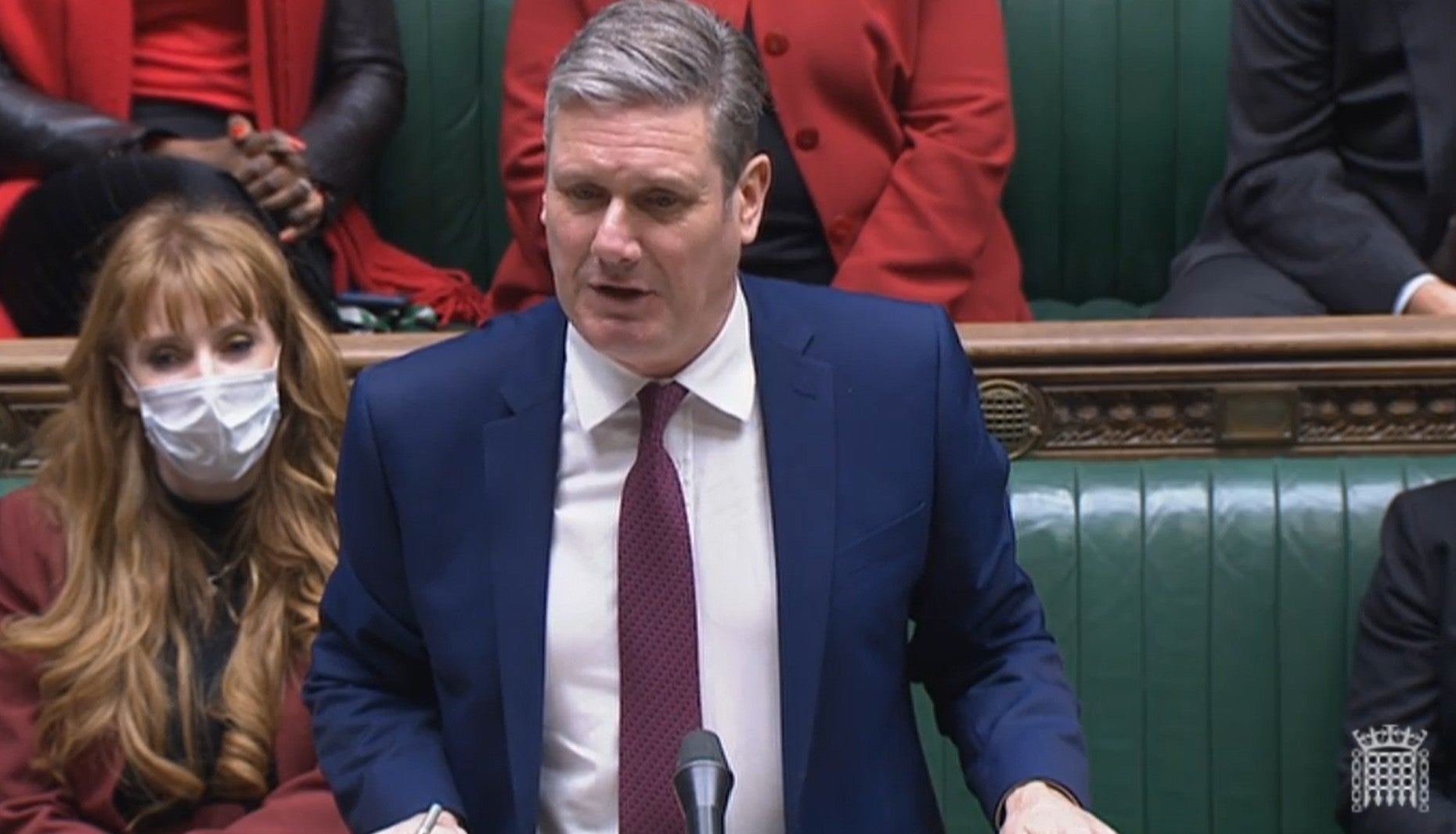Keir Starmer accused Boris Johnson of having lost his moral authority – as if he ever had it
The Labour leader tried and failed to capitalise on last night’s Tory rebellion, writes John Rentoul


Keir Starmer had a problem today, which was that he was entitled to ask six questions of the prime minister in their last exchange before the Christmas break, but he had only one point to make – and it was more of an observation than a question.
So he made his point six times, in slightly differently worded ways. His point was that Boris Johnson had lost the moral authority needed to ask the British people to make the sacrifices needed to control the omicron variant.
Unfortunately, this sanctimonious approach works best if the object of it shows the slightest willingness to accept the telling-off. But the prime minister was having none of it. He knows that body language and energy are important in the theatre of the House of Commons, so his hair was as unruly as ever; he bounced; he turned this way and that; he gesticulated across the despatch box at his would-be tormentor. And he simply rejected any facts that Starmer offered him. Was it not the case, asked the Labour leader, that 100 Conservative MPs voted against measures that are necessary to save lives, and that the Labour Party had to ensure that the measures passed?
Not only did Johnson say how much he understood the reservations of his freedom-loving comrades on the Conservative benches, but he denied that it was only thanks to Labour votes that he got the public health measures through parliament last night. We won “with Conservative votes”, he said, twice. Which is a Borisonian truth, a new term in experimental philosophy by which each part of a sentence is true but the parts are put together to give a misleading impression. So the government won the vote last night, and there were Conservative MPs who voted with their own government, but the decisive factor was that “the Labour Party showed the leadership that the prime minister can’t”, as Starmer put it, and saved Johnson from his own side.
If Labour had voted against vaccine passports (with a lateral flow test option), the government would have been defeated. “That’s not true,” chuntered a defiant Johnson, as Starmer was speaking, which means in Borisonian logic: “That’s quite true, but I am going to deny it and much fun will be had by all because it is panto season.”
Unfortunately for Starmer, the Commons is more like panto than a court room, and the more he talked of the prime minister’s moral authority, the less wounding the charge seemed to be. Starmer had some good lines. Tory MPs were “wrong to vote against basic public health measures but they are not wrong to distrust him”.
But it was always going to be a stretch to make the link between Christmas parties in Downing Street and the moral authority needed to save lives. “I don’t believe him, his own MPs don’t believe him, and the public don’t believe him,” Starmer said. Johnson refused to show any sign of penitence, saying that the cabinet secretary was investigating and referring to photos of Starmer “quaffing beer” during the tiered restrictions last Christmas.
To keep up to speed with all the latest opinions and comment sign up to our free weekly Voices newsletter by clicking here
So when Starmer came to his peroration, inviting Johnson to “look in the mirror” and ask himself whether he has the authority to carry on, the implausibility of that little scene undermined the seriousness of the message – because if the prime minister did look in a mirror, he would probably crack a joke, telling himself to put on a proper suit, do up his tie and sing the national anthem, just as David Cameron’s mother once told Jeremy Corbyn.
At this point, Starmer having made his sixth point that was more of an observation than a question, Johnson launched the full counter-attack, which was to point out that he had decided to go ahead with opening up society on 19 July – which Labour had opposed. Leaving aside all the flim-flam of suggesting Starmer wanted to delay the vaccines by staying in the European Medicines Agency, or accusing him of engaging in “partisan trivia” about parties, this was a serious point.
By reminding his back benches that he had made the right judgement about Freedom Day, Johnson briefly reunited his party, and made the point that decisions about restrictions are not always as clearly right or wrong as Starmer suggested. The government had tried to be “balanced and proportionate” in last night’s measures – some Conservatives, on balance, took a slightly different view.
For a prime minister who had just suffered one of the biggest rebellions in parliamentary history, Johnson was able to end the year still standing, by simply pretending it hadn’t happened.



Join our commenting forum
Join thought-provoking conversations, follow other Independent readers and see their replies
Comments